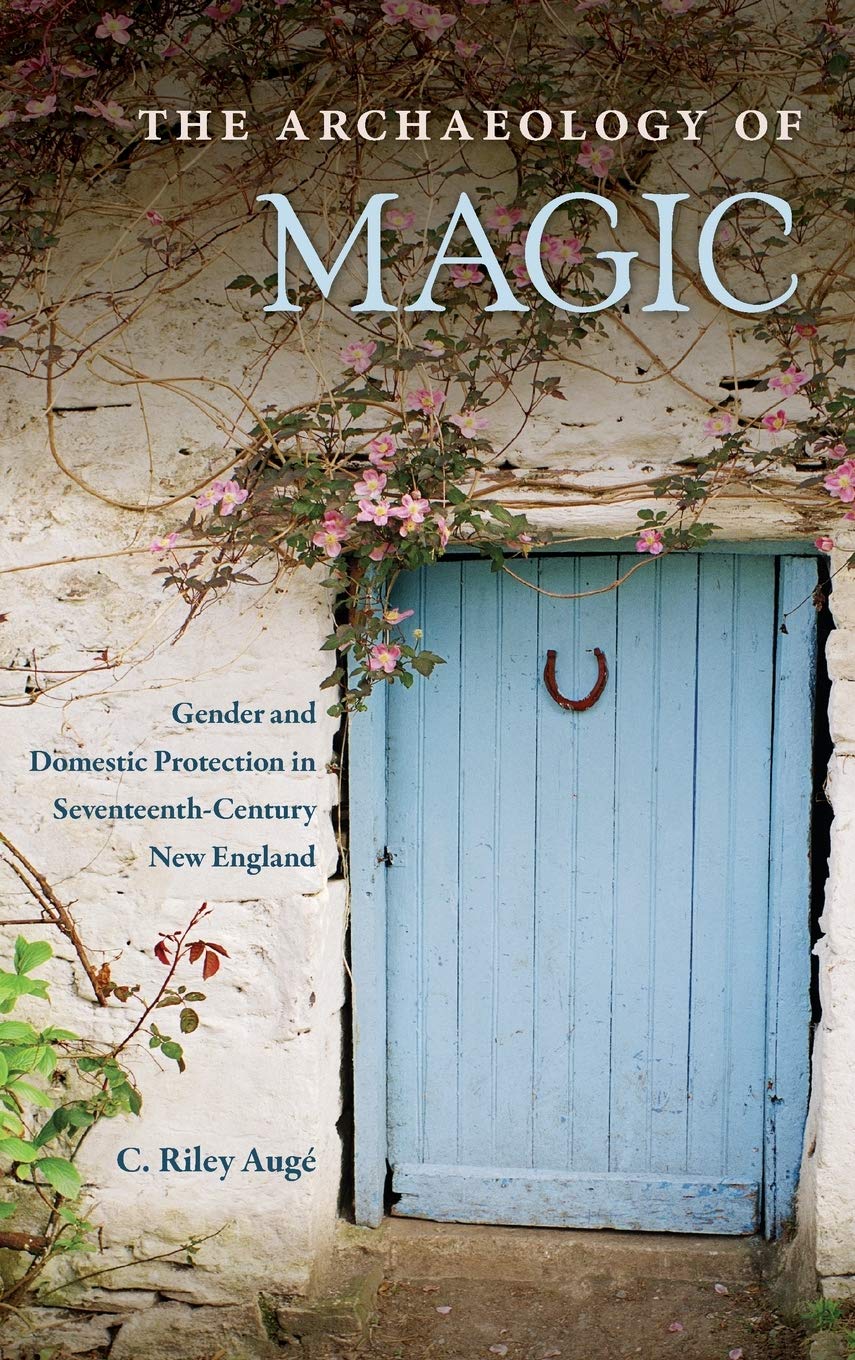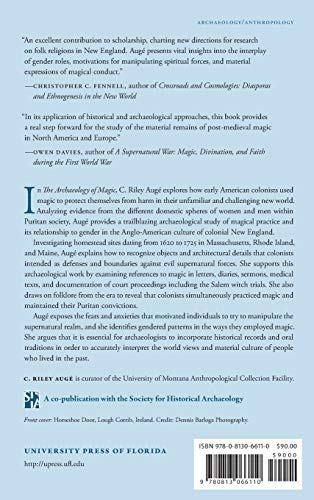In The Archaeology of Magic, C. Riley Auge explores how early American colonists used magic to protect themselves from harm in their unfamiliar and challenging new world. Analyzing evidence from the different domestic spheres of women and men within Puritan society, Auge provides a trailblazing archaeological study of magical practice and its relationship to gender in the Anglo-American culture of colonial New England. Investigating homestead sites dating from 1620 to 1725 in Massachusetts, Rhode Island, and Maine, Auge explains how to recognize objects and architectural details that colonists intended as defenses and boundaries against evil supernatural forces. She supports this archaeological work by examining references to magic in letters, diaries, sermons, medical texts, and documentation of court proceedings including the Salem witch trials. She also draws on folklore from the era to reveal that colonists simultaneously practiced magic and maintained their Puritan convictions. Auge exposes the fears and anxieties that motivated individuals to try to manipulate the supernatural realm, and she identifies gendered patterns in the ways they employed magic. She argues that it is essential for archaeologists to incorporate historical records and oral traditions in order to accurately interpret the worldviews and material culture of people who lived in the past. Published in cooperation with the Society for Historical Archaeology
The Archaeology of Magic: Gender and Domestic Protection in Seventeenth-Century New England (Co-published with The Society for Historical Archaeology)
$88.73
This book provides an academic and historical analysis of cultural beliefs, archaeology, and gender roles in colonial New England through the study of folk magic.
Additional information
| Weight | 0.476 lbs |
|---|---|
| Dimensions | 15.2 × 1.6 × 22.9 in |







Reviews
There are no reviews yet.